Christian & Tanja Tetzlaff, Leif Ove Andsnes, Wigmore Hall
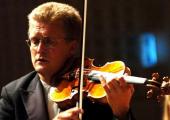

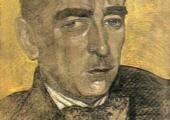
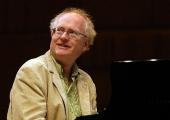

It’s tempting to say that if Martin Fröst didn’t play the clarinet then he’d be an actor or a dancer. But he is an actor and a dancer and at one point during this scintillating recital he even sang, too – whilst playing the clarinet at the same time, of course. That’s a given. It’s an extension of his lissom body, and in his shiny grey silk suit and untucked shirt he looked decidedly feline. Ever heard a clarinet purr? Ever heard it yowl, scamper, hiss, scratch? Has anyone ever pulled so many colours from the old liquorice stick?
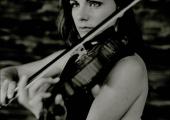
Is there a greater singleton's soundtrack than Bach's restless, tormented Three Partitas for Solo Violin? The works represent the extraordinary pinnacle of the violin repertoire and also the summit of Bach at his most chromatically and psychologically screwy. Snuggling up to these intensely fragile works, as so many Valentines couples were preparing to do last night at Wigmore Hall, is about as fun as curling up to a slice of Von Trier's cinematic clitoridectomy.

Two very different lessons on love this week. From the Aphrodite-like Joyce DiDonato at the Wigmore Hall, there emerged a correct, wise, honest way to achieve an enamoured state; from the familiarly fickle cast of Così fan tutte - an almost unwatchably faulty bunch of emotional primitives in Jonathan Miller's production for the Royal Opera - very much the wrong way.

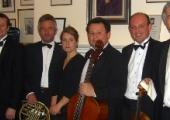
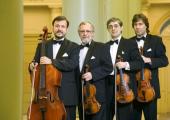
They're still bringing Beethoven and Shostakovich to London, enriching the mix a little with the cross-referencing of Alfred Schnittke, but the personnel of the Borodin Quartet have changed again. Patriarch cellist Valentin Berlinsky, there at the start over 60 years ago, passed on his bow to Vladimir Balshin before he died. Balshin is a worthy successor, especially since Berlinsky's tone had become translucent to the point of dematerialising and his successor's is rich indeed, but is "Borodin Quartet" now more a brand name than a vital entity?
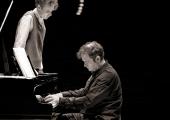
The term “accompanist” is no longer acceptable, no longer “politically correct” in musical circles, not least Lieder. It’s hard to imagine now that the relationship between a singer and his or her pianist was ever regarded as anything other than an equal partnership. But 26 years ago, when Julius Drake first stepped out on to the Wigmore Hall platform to play Poulenc with “friends”, the rarefied world of chamber music and song was a very different place. Even Gerald Moore, the most venerated of Lieder pianists, called his autobiography Am I Too Loud? – a title more than a little suggestive of subservience. One might imagine the likes of Elisabeth Schwarzkopf responding in the affirmative.